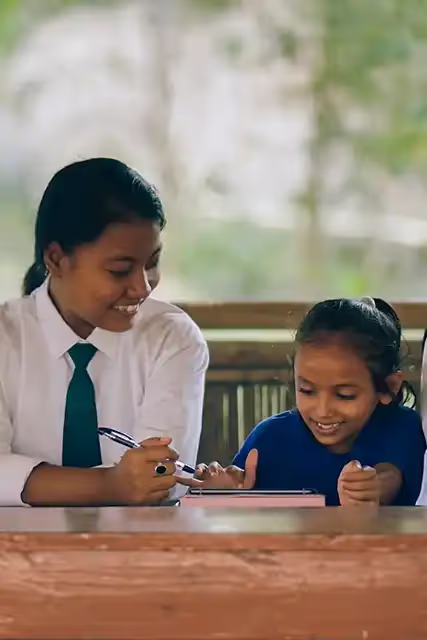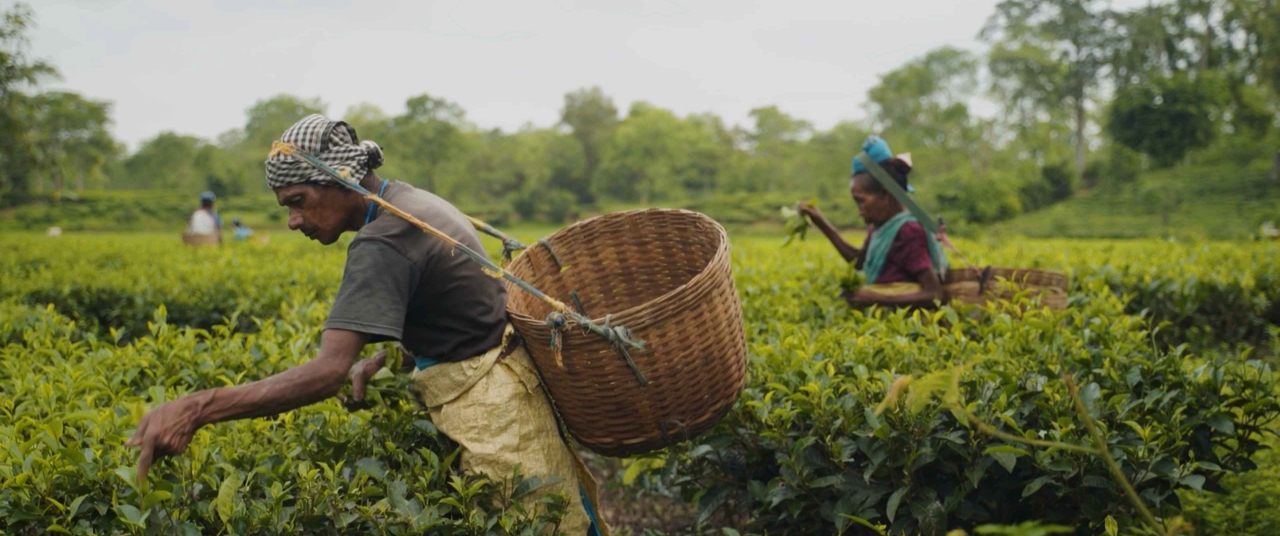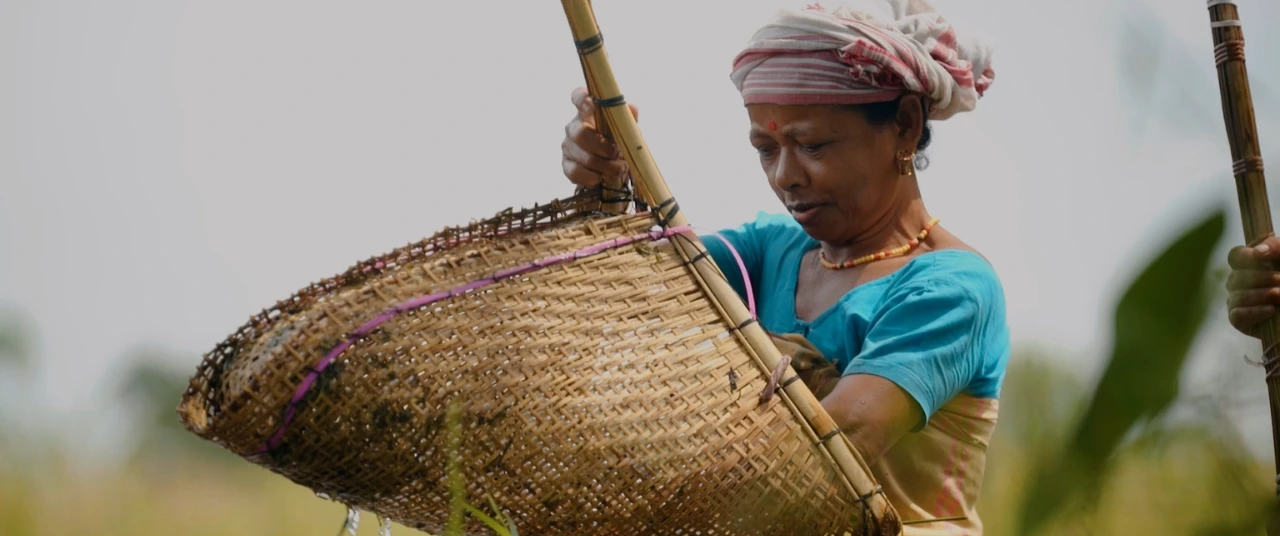Children ditch dangerous jobs, learn to recycle and earn while they study






Following Mahatma Gandhi's Nai Talim model of experiential learning, a small school in the outskirts of Guwahati, Assam addresses the struggle to educate its most vulnerable communities. Founded in 2016 by Parmita Sarma and Mazin Mukhtar, Akshar foundation provides free education to children from underprivileged families in exchange for plastic waste. Many of these youngsters, under 14, used to work in local stone quarries for meagre wages. Now, instead of money, they pay fees with plastic waste, learning about pollution's impact while helping to keep the nearby Deepor Beel wetland clean.
The school, which started with 20 students, has now reached its maximum capacity of 110, with seven teachers covering kindergarten to Grade 12. “The children collect plastic waste generated in their house and bring it to the school. Sometimes, the kids also collect plastic waste from their neighbours' homes,” said Sarma, adding that children are not encouraged to go beyond their neighbourhood to collect plastic waste.
The waste undergoes on-site recycling, transforming into eco-bricks, dog feeding bowls, flower planters, clipboards, and jewellery. The upcycled products are used in the school as well as sold to visitors. "Through this process, they are learning to see value in plastic,” said Sarma, who holds a master’s degree in social work.
The model
The school is in Pamohi, near Deepor Beel, a vital wetland and Assam’s only Ramsar site. The region is under severe threat of pollution, impacting the public health of local communities and disrupting the ecology. “We realised the villagers were burning plastic waste to keep themselves warm. Even toddlers would sit around the fire, inhaling the toxic fumes. This was alarming, and we decided we needed to find a solution,” said Sarma.

Sarma and Mukhtar urged parents to send plastic waste to the school, but their efforts were met with indifference, as the community perceived waste segregation as a time-consuming task. The founders also observed that FMCG (Fast-moving consumer goods) products that the poor can afford come in plastic packaging, leaving them little room towards making sustainable choices. “So we gave them two options—you either pay fees or deposit 25 plastic items every week. This led to full compliance from parents and the children,” said Mazin, an African-American who came to Assam in 2013 from New York to work in a school in Lakhimpur district where he met his wife, Parmita Sarma. Together, they decided to build the Akshar Foundation.
Ending child labour
The school offers vocational training courses, including teaching, carpentry, recycling, first-aid and animal care, office assistant, gardening, tailoring, and electrical work. The students invest one to two hours daily in these vocational training courses. “Once the students have completed their education, they can choose from various professions,” said Sarma.

Many children come from low-income families belonging to Karbi, Mishing, and Bodo tribes. These tribes are spread across the state, and some of them migrate to areas near Pamohi in search of employment. Parents often depend on their children as an additional source of income. “Many of these students were dropping out of school to work as labourers to support their families. So we decided to find a way to engage the children at the school and help them earn money,” said Sarma.
We realised that we would have to design our school and its curriculum around the realities of the children
Senior students spend around an hour everyday teaching juniors. In return, they earn points. “In this way, the older students develop skills like communication, leadership, and professionalism. The younger students receive private tuition daily from the older students. This arrangement proves particularly beneficial as many of the younger students lack the educational support at home, given that their families are predominantly illiterate,” she said.
The points function as currency in the school's bank, where students can save and also spend on snacks, sports equipment, clothes, toys, and shoes in the school's store and local shops. This system protects children's earnings from being appropriated by parents for household expenses.
Open school system
The Akshar School follows the National Institute of Open Schooling system instead of the more rigid curriculum of the Board of Secondary Education Assam (SEBA).
“We realised that we would have to design our school and its curriculum around the realities of the children. Some children join our school years after they drop out. We assess their aptitude and place them in grade levels that align with their abilities. This targeted approach has helped students make the most of their education,” said Sarma.
The curriculum combines hands-on vocational skills with traditional academic subjects. Students learn carpentry, solar tech, and tailoring along with mathematics, physics, and economics.
So far, five students have graduated from Akshar and are currently employed as teachers in the school. Some female students, who would have otherwise been married off, are now working and contributing to their families, said the founders.
Changing lives
Sarma cited the example of eight-year-old Nitumoni (name changed), whose parents struggled with alcoholism while he was toiling in a stone quarry. “Despite these challenges, he displayed remarkable intelligence and excelled in mathematics. He could have ended up like his alcoholic parents but is now on a completely different trajectory. He now has savings in his bank account and is thriving in his academics while residing in the school hostel,” said Sarma.
The foundation has also helped girls who were at risk of child marriage and has provided them with education and vocational training, allowing them to earn money and stay in school.

Working with government schools
The Akshar Foundation started its first government school intervention in Delhi in 2018. Last year, the foundation signed an MoU with the government of Assam to start interventions in at least 100 government schools across the state. They hope to start this process by 2025-26. The progress will depend on the receptiveness of the schools, Sarma said.
The foundation is also working with 30 government schools across Assam and will soon implement the model in Madhya Pradesh, Uttarakhand, and Maharashtra.
With each student's journey from labourer to eco-warrior, the school plays an important role in providing children with the childhood they deserve while providing relevant skills to break out of the poverty they were born into. With Sarma and Mukhtar’s work showing promises of scaling up, their mission goes a long way in building a brighter and more sustainable future—one student, one eco-brick at a time.
Explore other topics
References




-min.avif)




